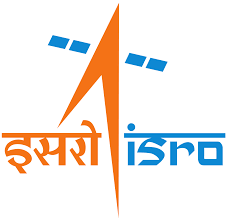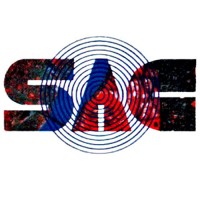
About GHRSST24 International SST Users’ Symposium and Science Team Meeting
The 24th International SST Users’ Symposium and GHRSST Science Team Meeting (GHRSST24) will take place from 16 to 20 October 2023 as a virtual and in-person meeting hosted by the Indian Space Research Organisation (ISRO) and Space Application Center (SAC) in Ahmedabad, India.
Dates: 16 to 20 October 2023 (please see and take note of the schedule below)
Format: virtual and in-person
Target Audience: SST users, SST data producers, and SST scientists
Locations
Physical Location: WYNDHAM Ahmedabad Shela Hotel, SEVEN LEISURE PRIVATE LIMITED “Grand O7”, Club O7- Club & Convention, Near Bopal 444, Off S.P. Ring Road, Ahmedabad, 380058
Virtual Location: EUMETSAT Moodle & MS Teams
Schedule
16 October 2023: GHRSST International Science Team Meeting (invitation only – this day is reservered for the GHRSST Science Team only)
17 to 20 October 2023: International SST User Symposium (The symposium will take place with the six science sessions, this open part of the event will start at 10 am on Tuesday and close on Friday around lunchtime)
-
- In addition to the talks and the poster sessions, in-person workshops and panel discussions are planned.
-
20 October 2023 (afternoon): In-person training on GHRSST specified/formatted products (invitation only)
Local host: Indian Space Research Organisation (ISRO) and Space Application Center (SAC)
Proceedings
The Proceedings of the 24th International SST User Symposium and GHRSST Science Team Meeting is now available. Access the proceedings here.
Agenda, Book of abstracts and Moodle
Find all your practical information about GHRSST24 below. Here you will find the following information:
- Agenda
- Book of Abstracts
- Guidelines for GHRSST24
- Instructions for participation and for accessing Moodle
Access these documents here.
Moodle: Moodle is the backbone of the symposium documentation. It can be accessed from this link.
Outline of the Symposium
Six Science Sessions: Check the outline of the science sessions
Data producers updates (RDACs reports): All the contributions are now available on YouTube.
Reports of the GHRSST Task Teams: All the reports to the science team have been recorded and are available on YouTube.
A hands-on training session on GHRSST products
CEOS SST-VC Meeting
GHRSST Task Teams’ Reports
GHRSST Advisory Council Meeting
Session 1: Science applications for operational users of SST in India
Keynote
Impact of satellite-derived sea surface temperature data in the variational assimilation system, Imranali M Momin, J. P. George and V. S. Prasad, National Centre for Medium-Range Weather Forecasting (NCMRWF), Ministry of Earth Sciences (MoES)
Talks
- Sea surface temperature anomaly over the south-eastern Arabian Sea with the changing phase of the Indian Ocean Dipole, Simi Mathew, Indian Institute of Technology Madras
- Monitoring phytoplankton bloom occurrence and its associated parameters in the North Eastern Arabian Sea using GHRSST data, Greeshma K. U., National Institute of Technology, Karnataka, Surathkal
- Space-based Coral Bleaching Monitoring over Indian Reef Region: Need for High-resolution SST Data, Nandini Ray Chaudhury, Space Applications Centre (SAC), ISRO
- Impact of different GHRSST data sets on simulation of the Indian summer monsoon, Neeraj Agarwal, Space Applications Centre (SAC), ISRO
- Assimilation of in-situ and remote sensing data in the Regional Ocean Modeling System for the Indian Ocean, Balaji Baduru, Indian National Centre for Ocean Information Services (INCOIS), Ministry of Earth Sciences(MoES), Government of India
Session 2: Processing and product generation
Keynote
A 40-year Sea Surface Temperature Climate Data Record from the ESA Climate Change Initiative, Owen Embury, University of Reading and National Centre for Earth Observation
Talks
- Significant Diurnal Warming Events and Ocean Warm Skin Signals Observed by Saildrone at High Latitudes, Chong Jia, Rosenstiel School of Marine and Atmospheric Science, University of Miami
- A satellite-based surface temperature climate dataset of the Arctic ocean and sea ice, 1982–2021, Pia Nielsen-Englyst (Speaker: Jacob L. Høyer), Danish Meteorological Institute
- Joint reconstruction of ocean surface currents and temperature through deep learning algorithms, Daniele Ciani, Consiglio Nazionale delle Ricerche, Istituto di Scienze Marine
- Invited talk Sea Surface temperature reprocessing of Himawari-8 Archive, Pallavi Govekar, Bureau of Meteorology
Session 3: Calibration, Validation and Product Assessment
Keynote
Validation of Himawari-8 Sea Surface Temperature Retrievals Using Infrared SST Autonomous Radiometer Measurements, Haifeng Zhang, Bureau of Meteorology
- Presentation: Validation of Himawari-8 SST Retrievals Using ISAR Measurements (zenodo.org)
- Recording
Talks
- Identification of Sea Surface Temperature and Sea Surface: Salinity Fronts along the California Coast: Application Using Saildrone and Satellite-Derived Products, Jorge Vazquez, NASA Jet Propulsion Laboratory/California Institute of Technology
- Inter-comparison of GHRSST Sea Surface Temperature Products from Different Resolutions and Datasets: A Case Study in the Indian Ocean Region, Surisetty V V Arun Kumar, Space Applications Centre (ISRO)
- Ship-Borne Inter-Comparison of Thermal Infrared and Passive Microwave Instruments for Sea Surface Temperature Measurements, Guisella Gacitúa, Danish Meteorological Institute
- Importance of Uncertainties and Benchmark Metrics in the Diagnostics and Intercomparisons of Sea Surface Temperature Records, Boyin Huang, NOAA/NCEI
Session 4: Retrieval Algorithms
Keynote
Effects of the Hunga Tonga-Hunga Ha’apai Eruption on MODIS-retrieved Sea Surface Temperatures Rosenstiel School of Marine and Atmospheric Science, Chong Jia, University of Miami
- Presentation: Effects of the Hunga Tonga-Hunga Ha’apai Eruption on MODIS-retrieved Sea Surface Temperature (zenodo.org)
- Recording
Talks
- A sea surface temperature retrieval algorithm for CIMR, Jacob L. Høyer, Danish Meteorological Institute
- TRISHNA Sea Surface Temperature Retrievals: comparison of multiple algorithms, Emilie Delogu, Centre National d’Etudes Spatiales (CNES)
- MAESSTRO: Masked AutoEncoders for Sea Surface Temperature Reconstruction under Occlusion, Alice R. Yepremyan, NASA Jet Propulsion Laboratory/California Institute of Technology
- Inter-comparison of various AI/ML techniques for SST retrieval from INSAT-3D Imager, Rishi Kumar Gangwar, Space Applications Centre (ISRO)
Session 5: Computing and products
Keynote
Optimizing Data and Services in the Cloud for User Exploitation, Ed Armstrong, NASA Jet Propulsion Laboratory/California Institute of Technology
- Presentation: Optimizing Data and Services in the Cloud for User Exploitation (zenodo.org)
- Recording
Talks
- Temporal and geospatial characterization of trends in sea surface temperature, Prasanjit Dash, NOAA NESDIS STAR / CSU CIRA
- Searching and selecting GHRSST data with Opensearch, Jean-François Piollé, Ifremer
- TRISHNA products format and content for water users, Jean-Louis Raynaud, Centre National d’Etudes Spatiales (CNES)
- An evaluation of the LLC4320 global ocean simulation based on the submesoscale structure of modelled sea surface temperature fields Institute for Defense Analyses, Katharina Gallmeier, IDA Headquarters, IDA Systems and Analyses Center
Session 6: High-resolution future satellite missions
Keynote 1
TRISHNA – A joint Indo-French TIR-VSWIR science mission towards global water and food security, Bimal K Bhattacharya, Space Applications Centre, Indian Space Research Organization (ISRO)
Keynote 2
Land Surface Temperature Monitoring (LSTM) Mission, Steffen Dransfeld, European Space Agency
Talks
- Designing new ultra-high-resolution Sea Surface Temperature products in coastal areas for the future TRISHNA mission, Emmanuelle Autret Ifremer, Univ. Brest, CNRS, IRD, Laboratoire d’Oceanographie Physique et Spatiale (LOPS)
- Coastal-zone sea surface temperature at ~100 m resolution, Christopher Merchant, University of Reading and National Centre for Earth Observation
- Enhanced continuity of SST measurements from Sentinel-3 Next Generation Optical, Paolo Cipollini, European Space Agency
- Towards the next generation Sentinel instruments: The Advanced SLSTR, Jonathan Mittaz, University of Reading
- Presentation: The next generation ASLSTR Sensor (zenodo.org)
- Recording
Organising team
For the GHRSST24 agenda, science sessions, presentations, posters:
Ms Chiara Bearzotti, GHRSST Project Office, GPO Coordinator, Danish Meteorological Institute, email: chb@dmi.dk
Ms Erika Hayashi, GHRSST Project Office, Project Manager, Danish Meteorological Institute, email: erh@dmi.dk
For any other business/official requests or queries:
Dr Neeraj Agarwal, ISRO, member of the GHRSST science team, email: neeraj@sac.isro.gov.in


